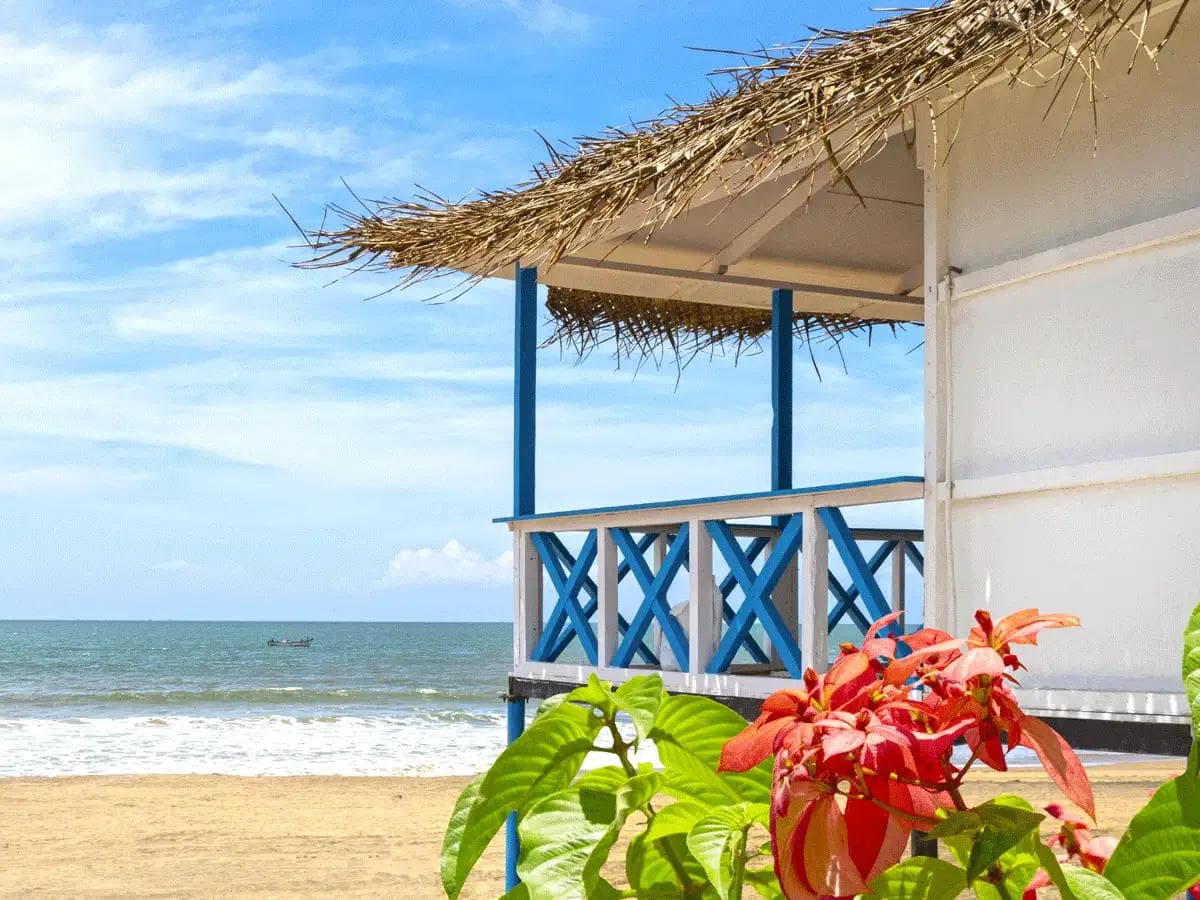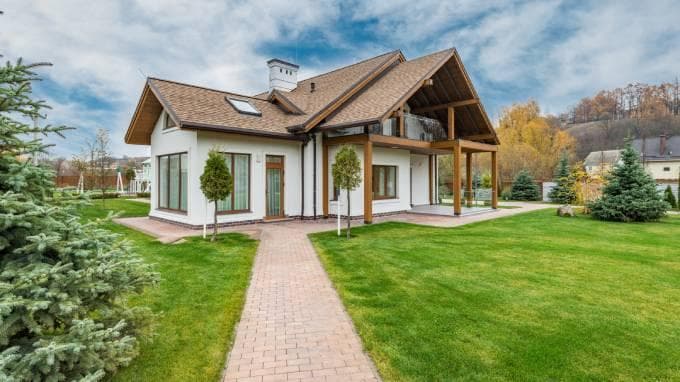Buying Property for a Vacation or Holiday Home in India: A Comprehensive Guide
Summary
Dreaming of a holiday home in India? This guide covers everything from emotional factors and location choices to financial and legal considerations. Learn how to turn your vacation home dream into a smart investment and a personal sanctuary.

Buying Property for a Vacation or Holiday Home in India?
There’s a certain kind of peace that only comes from waking up to quiet skies. No honking cars, no buzzing notifications—just the sound of waves, rustling leaves, or birds singing outside your window. That’s what owning a vacation home feels like. It’s not about bricks, paint, or property value—it’s about reclaiming a piece of calm in a world that never stops rushing.
For many of us, especially city dwellers juggling deadlines, traffic, and rent, the idea of having a little space tucked away somewhere feels almost like a dream. A holiday home in the hills, by the beach, or near a forest—it’s more than real estate. It’s an emotion. A promise to yourself that you’ll slow down sometimes.
And over the past few years, more people have started chasing that feeling.
The Emotional Pull of a Second Home
When people talk about buying a second home, they rarely talk about numbers first. They talk about feelings.
They talk about wanting a space where their kids can grow up watching sunsets instead of screens. A place where they can breathe, maybe plant a few trees, sip morning chai with dew on the leaves, and finally exhale.
After COVID, especially, priorities shifted. We learned that home isn’t just a shelter—it’s where we feel safe, where we find ourselves again. That’s why so many professionals, NRIs, and families began looking at vacation homes in India—a farmhouse near Pune, a cottage in Himachal, or a sea-facing flat in Goa.
It’s not just about “getting away.” It’s about having somewhere that brings you back to life.
Choosing the Perfect Location—Your Heart Will Know
Buying property is logic. Buying a vacation home is instinct.
Yes, you must consider connectivity, infrastructure, and return on investment—but let’s be real: you’ll know the right spot when your heart feels it. Maybe it’s the smell of pine trees in Kasauli, or the quiet blue mornings of Alibaug.
If you’re from Mumbai or Pune, weekend havens like Lonavala, Karjat, Alibaug, or Mahabaleshwar are easy choices. They’re close enough for quick drives yet far enough to feel like another world. Delhi folks might lean toward Rishikesh, Nainital, or Kasauli, while those in the South often dream of Coorg, Wayanad, or Ooty.
But don’t just chase Instagram locations. Visit. Stay for a week. Talk to locals. Feel the rhythm of the place. Does it still charm you after sunset? Can you see yourself there not just on a long weekend, but on a random Tuesday evening when the rain pours and your phone has no signal?

That’s how you know.
The Reality Beneath the Dream
Every dream has its fine print. Buying a holiday property sounds magical, but it’s not a fairy tale.
First, there’s maintenance. A villa in the hills might look perfect in pictures, but who will check on it when monsoon hits hard? Salt in the coastal air corrodes faster than you think. Garden upkeep, cleaning, security—it all adds up.
Then comes accessibility. Can you reach your home easily during heavy rains? Is the road well-lit? Is medical help nearby? A vacation home shouldn’t turn into a logistical nightmare.
Lastly, there’s seasonality. A place might feel heavenly in March but unbearably humid in June. Always visit your potential property across different seasons before deciding. You don’t want your dream home turning into a damp, deserted disappointment half the year.
Turning Emotion into Smart Investment
Now, let’s talk money—because even the most emotional decision needs a practical heart.
Buying a second home in India can actually be a smart financial move if done thoughtfully. Tourist-heavy areas offer strong rental potential. Thanks to Airbnb and homestay platforms, many owners now rent out their vacation homes part-time and earn solid income.
But remember, the numbers work only if the home stays maintained and accessible year-round. You’ll also need to manage guests, cleaning, and repairs. If you live far away, hiring a property manager helps.
As an investment, land or villa appreciation near metro cities has been strong—especially along the Mumbai-Goa coastal belt, Dehradun, or Coorg. With infrastructure growth and rising disposable income, second homes are becoming a mainstream investment class in 2025.
Still, don’t buy just because prices may rise. Buy because it feels right. Because every time you step there, you feel something shift inside you.
Legal and Financial Groundwork
The most human mistake buyers make? Falling in love first, checking documents later.
Don’t.
Always confirm clear land title, ownership history, building approvals, and zoning permissions. If it’s agricultural land, verify if non-farmers can purchase it. Coastal or hill properties might require special environmental clearance. Hire a local property lawyer to handle due diligence—it’s worth every rupee.
If you’re taking a loan, know that home loan terms for second homes can differ. Banks may ask for a 25–30% down payment and slightly higher interest. Use a home affordability calculator to understand what you can comfortably afford without stretching too thin.
The goal is to own a home that brings peace—not pressure.
The Emotional Side of Ownership
There’s something deeply grounding about having a place that’s truly yours—away from the rush, the meetings, the routine. A home that doesn’t demand productivity.
Picture this: a warm morning, coffee in your hand, your dog running through the grass, no alarms, no notifications. Just stillness.
That’s the beauty of a vacation home. It reminds you that you don’t always have to be “on.” It gives you permission to pause.

For many families, it becomes a legacy. A place where birthdays, anniversaries, and quiet weekends all blur into memories. It’s where children grow up visiting and later return as adults—because it’s the one place that never changed.
Challenges You Should Acknowledge
Let’s be honest. It’s not all dreamy sunsets. A vacation home can be expensive to maintain, especially if it stays unused for long. You’ll need reliable caretakers, regular inspections, and maybe CCTV monitoring.
Then there’s the emotional side of guilt—if you’re too busy to visit often, you might start wondering if it was worth it. But here’s the thing: it’s okay. Some dreams aren’t for daily use—they’re for knowing you can escape when you want to.
If you rent it out, expect occasional wear and tear. Guests won’t treat it like you do. Set rules, hire managers, and accept small imperfections.
The Bigger Picture
India’s holiday home market is booming. Developers are creating gated villa projects near hills and beaches. People want more space, more air, more life. The concept of “workation homes” is taking off—homes equipped for work and relaxation.
In 2025 and beyond, owning a second home won’t just be a luxury—it’ll be a lifestyle shift. A statement that you value peace as much as productivity.
The Truth About Buying a Vacation Home
When you buy a vacation home, you’re not just buying a property—you’re buying possibility. A possibility to pause life’s chaos and breathe.
It’s not just where you’ll go on weekends—it’s where you’ll go to feel like yourself again.
So yes, crunch the numbers, check the documents, think practically. But when the day comes and you stand on that plot of land, look around and ask yourself—does this place feel like mine?
Because in the end, a vacation home isn’t about luxury. It’s about belonging.
It’s about having one corner of the world that whispers, you can rest here. 🌿
